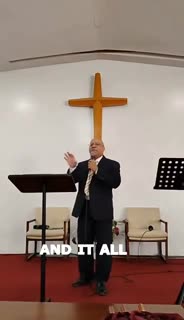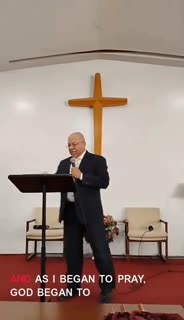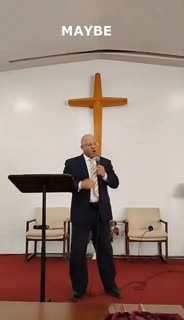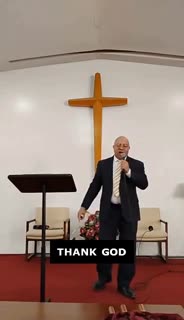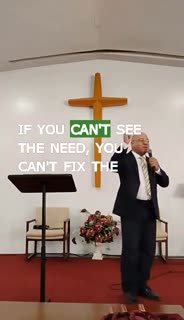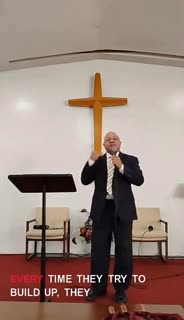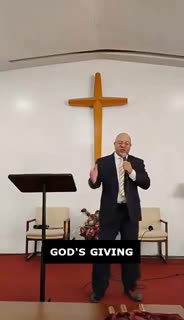Embracing Brokenness: A Pathway to Renewal
Devotional
Sermon Summary
Bible Study Guide
Sermon Clips
"And it all begins with seeing our brokenness. Seeing our brokenness. That's where revival begins. So we want to preach that this morning. Thankful for a chance, which is going to be our sermon series. Grateful for the chance to see our brokenness." [00:28:04] (17 seconds)
"And as I began to pray, God began to deal with my heart about people who have become desensitized to their environment. And desensitization is because you're desensitized to negativity in your environment." [00:30:28] (22 seconds)
"Maybe hope never came into your mind. Maybe you're afraid that you can hope that your situation can change. Maybe you're afraid to even try to change it. But I want to tell this morning that the same God that's sitting in Nehemiah, the same God that is sitting on the wall, the same God that is sending the message of hope, today, God can rebuild your world." [00:33:10] (20 seconds)
"Thank God you're not so lost that you can't even tell that you need God in your life. Thank God for the lives of many that have given up or turned their back on God to such a degree that they can't even tell how far from God they are." [00:35:12] (13 seconds)
"If you can't see the need, you can't fix the problem. And there's a whole lot of people that can't see the need in their life. And so they stay stuck in that problem. They stay stuck in that situation." [00:37:38] (11 seconds)
"Every time they try to build up, they would try to do work on the outside, building the walls, trying to build the gates. How many of you have been this morning? But there's one thing they did not do. They didn't work on the relation with God on the inside." [00:49:50] (16 seconds)
"God's giving you an opportunity to get back up. God's giving you an opportunity to get back up. All you need is to worship God. Give him all the praise. Thank you, Lord. God. Thank you, Jesus." [01:02:34] (12 seconds)
Ask a question about this sermon
"And as I began to pray, God began to deal with my heart about people who have become desensitized to their environment. And desensitization is because you're desensitized to negativity in your environment." [00:30:28] (22 seconds)
"Maybe hope never came into your mind. Maybe you're afraid that you can hope that your situation can change. Maybe you're afraid to even try to change it. But I want to tell this morning that the same God that's sitting in Nehemiah, the same God that is sitting on the wall, the same God that is sending the message of hope, today, God can rebuild your world." [00:33:10] (20 seconds)
"Thank God you're not so lost that you can't even tell that you need God in your life. Thank God for the lives of many that have given up or turned their back on God to such a degree that they can't even tell how far from God they are." [00:35:12] (13 seconds)
"If you can't see the need, you can't fix the problem. And there's a whole lot of people that can't see the need in their life. And so they stay stuck in that problem. They stay stuck in that situation." [00:37:38] (11 seconds)
"Every time they try to build up, they would try to do work on the outside, building the walls, trying to build the gates. How many of you have been this morning? But there's one thing they did not do. They didn't work on the relation with God on the inside." [00:49:50] (16 seconds)
"God's giving you an opportunity to get back up. God's giving you an opportunity to get back up. All you need is to worship God. Give him all the praise. Thank you, Lord. God. Thank you, Jesus." [01:02:34] (12 seconds)
